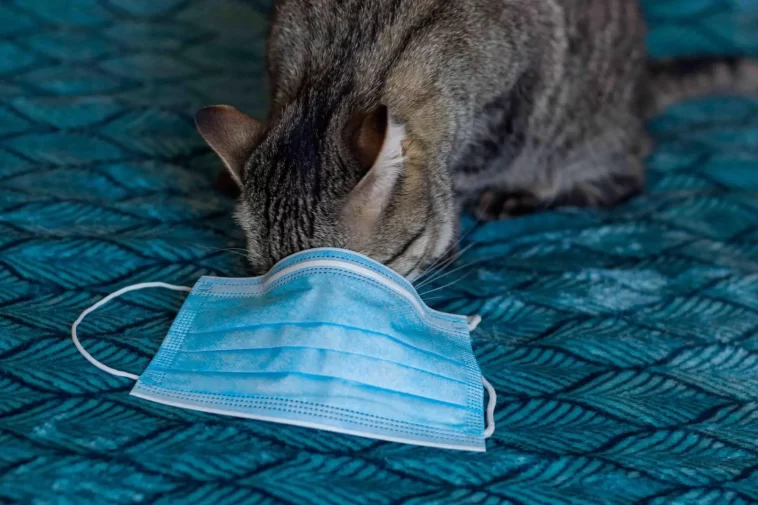A team in Thailand reported a highly convincing evidence of a pet cat infecting a person with the coronavirus, adding them to the list of animals that can transmit the virus to people. Studies early in the pandemic found that cats shed infectious virus particles and can infect other cats. And over the course of the pandemic, countries have reported Covid infections in dozens of pet cats.
In August 2021, a father and son, who had tested positive for Covid-19, were transferred to an isolation ward at the university’s hospital. Their 10-year-old cat was also swabbed and tested positive. While being swabbed, the cat sneezed in the face of a veterinary surgeon, who was wearing a mask and gloves but no eye protection. Three days later, the vet tested positive for Covid. The vet also suggested she may have been affected by the cat.

Genetic analysis also confirmed that the vet was infected with the same variant as the cat and its owners, and the viral genomic sequences were identical.
Researchers say that such cases of cat-to-human transmission are probably rare nevertheless, it is worth taking extra precautions when handling cats suspected of being infected. Other animals suspected of infecting people include farmed mink in Europe and North America, pet hamsters in Hong Kong and wild white-tailed deer in Canada.
And now, adding cats to the list.
Researchers still say these are all rare events and animals don’t yet play a significant part in spreading the virus. “Humans are clearly still the major source of the virus,”





